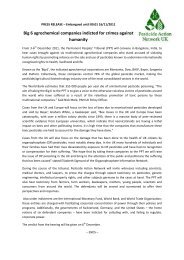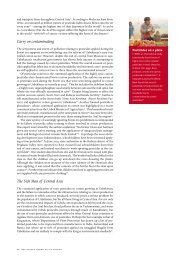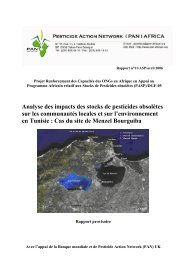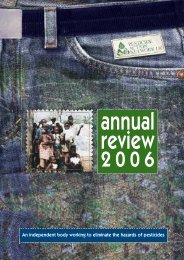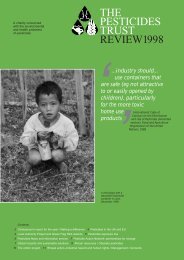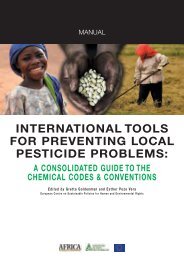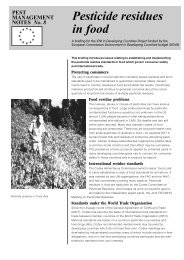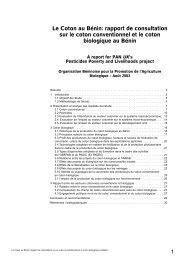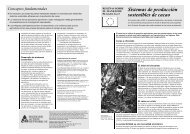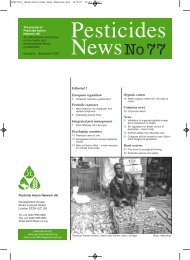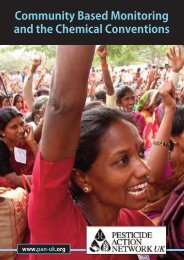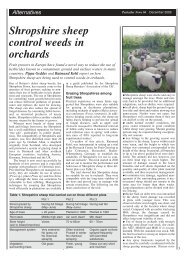Tanzania Multi Stakeholder Map - WebNG
Tanzania Multi Stakeholder Map - WebNG
Tanzania Multi Stakeholder Map - WebNG
You also want an ePaper? Increase the reach of your titles
YUMPU automatically turns print PDFs into web optimized ePapers that Google loves.
It was highlighted that the challenges are Irregular meetings for the constituted<br />
committees, non-involvement of all stakeholders in decision making, low<br />
knowledge and awareness to important stakeholders, inadequate coordination<br />
among ministries, DNAs and other stakeholders, lack of feedback mechanism<br />
from international meetings, inadequate dissemination of information to<br />
stakeholders, inadequate human and financial resources, lack of networking and<br />
collaboration at the regional level and lack of experience in preparing and<br />
submitting import responses. In order to overcoming these challenges there is a<br />
need to publicising the convention in a simplified language, sensitization and<br />
awareness raising at all levels, create a forum for dissemination of information,<br />
identify a proper and sustainable funding mechanism, build capacity of<br />
stakeholders and enhance regional cooperation by sharing available resources.<br />
The presenter elaborated on the link between the Convention, Poverty Reduction<br />
strategy. For example an early warning system will save resources, promote<br />
sustainable agriculture and industrial production. Increase production will combat<br />
hunger, disease and poverty. He concluded that Government has a responsibility<br />
of implementing the provisions of the Convention by involving other key and<br />
proper players (well trained, informed and committed).<br />
3.2.3 Basel Convention /Bamako Conventions: Implementation Status in<br />
<strong>Tanzania</strong><br />
Mr. Issaria Mangalili – Vice President Office –Division of Environment<br />
Basel Convention is a Global Environmental Treaty and has 165 States and EU-<br />
Signatories. It was adopted (22 March 1989) and came into force (5 May 1992).<br />
<strong>Tanzania</strong> is a Party to the Convention since 1993. Several technical guidelines<br />
on management of various streams of Hazardous Waste (HZW) have been<br />
developed to assist Parties on management of HZW. Objective of the Basel<br />
Convention are to reduce trans-boundary movement of HZW, prohibit HZW<br />
shipments to countries without capacity, treat HZW at source, minimize HZW<br />
generation and assist Developing / Countries with Economies in Transition. Key<br />
issues of the Basel Convention are notification, prior consent, and duty for reimport<br />
and legal responsibility of states. General obligations are to take<br />
appropriate legal, administrative and other measures to implement the<br />
Convention, ensure management of wastes in an environmentally sound manner,<br />
meet the requirements of the notification procedure before any transboundary<br />
movement and transmit information regarding quantities of hazardous wastes<br />
produced and measures taken to implement provisions of the Convention.<br />
The presenter informed participants on the amendments of the Basel<br />
Convention, which were done in September 1995, where Parties adopted a<br />
11





